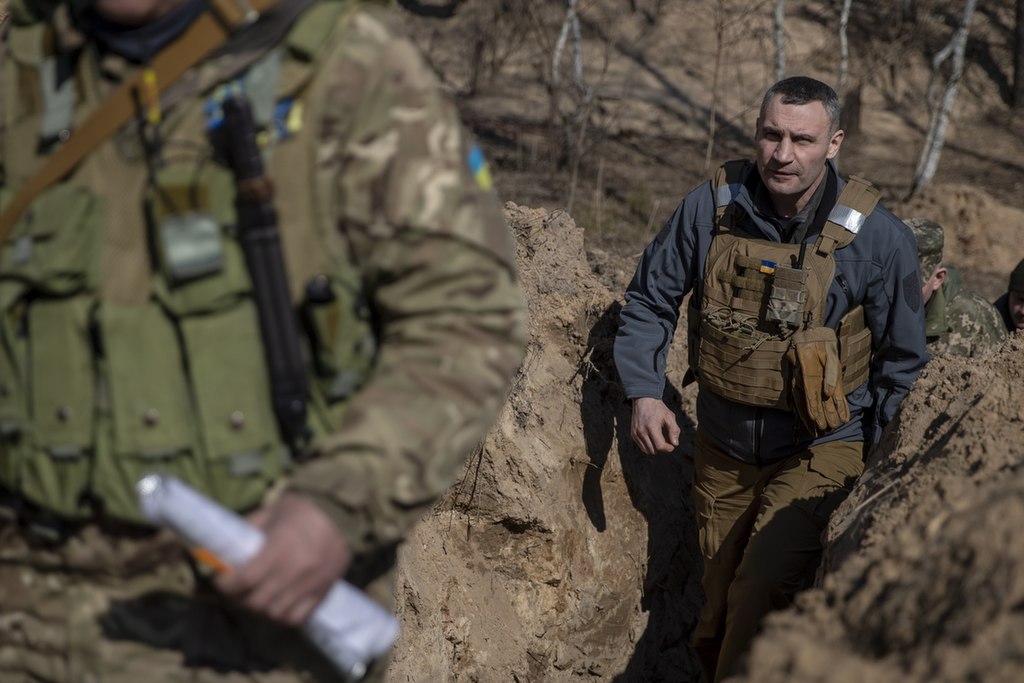The Russian invasion of Ukraine has resulted in the destruction of the post-Cold War global order. A new Iron Curtain is being built as Russian and Ukrainian troops continue fighting for strategically important territories in the Eastern European country.
Almost a month after the Kremlin launched its “special military operation”, Russia is still very far from achieving its political and military goals in Ukraine. Although Moscow and Kyiv continue holding talks, there are no indications that a peace deal could be signed any time soon.
As the Kremlin spokesperson Dmitry Peskov stressed on March 21, there will be no ceasefire during the peace talks between Russia and Ukraine, which means that Moscow does not intend to end its “special operation” in the near future. But can Russia afford to fight a long war in Ukraine?
Since the breakup of the Soviet Union, the Russian economy has been integrated into the European market. In 2020, the European Union was Russia’s first trade partner, accounting for 37.3 percent of the country’s total trade in goods with the world. Sanctions that the West imposed on Moscow will undoubtedly have a severe impact on the economies of both Russia and European countries.
According to Anton Siluanov, Russian Minister of Finance, as a result of sanctions around $300 billion out of the $640 billion that Russia had in its gold and forex reserves has been frozen. For instance, France has recently frozen 22 billion euros ($24 billion) worth of assets belonging to the Russian Central Bank, while the United Kingdom has frozen the assets of several Russian oligarchs. How did Russia respond?
Russian President Vladimir Putin said that, unlike Western governments, Russia would “respect property rights”, even though the Kremlin threatened to nationalize the assets of Western companies that have suspended operations in the country. To this day, however, Russia remains focused on “digital decoupling” from Western social media. The authorities have already banned Facebook and Instagram in the country, and have restricted access to several Western media websites. Such actions are part of the Kremlin’s strategy to win the media war at home.
Economically, both Russia and the West still hesitate to impose sanctions on the oil and gas trade, given that European countries are heavily dependent on Russian energy and that, for Moscow, Europe remains the major export market. Still, there are indications that Russia could soon formally quit the World Trade Organization.
“After joining the international organization, Russia’s dependence on the United States and the EU increased, while Russian products were not allowed to go the West”, said Sergey Mironov, leader of A Just Russia, the political party that initiated “Ruxit” from the WTO.
The Kremlin seems to be attempting to achieve some sort of economic self-sufficiency. The problem, however, is that it is a long-term process, and it is highly uncertain whether the Russian society is ready for great sacrifices. It is more probable that Moscow will attempt to increase its economic and political relations with China, in order to reduce the effect of Western sanctions, although the United States will likely pressure Beijing to limit its business ties with Russia.
“Now is the time where things are shifting. There’s going to be a new world order out there and we’ve got to lead it”, said the US President Joe Biden.
https://twitter.com/theragex/status/1506048082311589890
Where is Russia’s place in a new world order? As long as Putin is in power, Russia is expected to remain isolated from the West. According to Russia’s Foreign Ministry, Russian-American relations are on the verge of collapse. It is not improbable that the two countries will eventually break off diplomatic ties. Still, the US is unlikely to get involved in a direct military confrontation against the Russian Federation, although it will undoubtedly back Poland and other NATO members if they decide to deploy their troops to Ukraine. Such a move could lead to what Ukrainian President Volodymyr Zelensky described as a major war in Europe.
As a result, Ukraine might be partitioned, unless NATO and Ukrainian Armed Forces manage to defeat the Russian army and force it out of the Eastern European country. In that case, the Kremlin would face the catastrophic consequences of its military adventure. Indeed, Putin’s failure in Ukraine could eventually lead not only to the end of his rule, but also to a breakup of the Russian Federation.
Thus, from Moscow’s perspective, there is no alternative to a victory over Ukraine. On the other hand, from Kyiv’s perspective, a victory over Russia has no alternative, since a defeat will mean a de facto breakup of Ukraine. That is why the two countries are expected to continue fighting. The stakes are already too high, and reaching a compromise will be very difficult.
One thing is for sure: war in Ukraine is a war for future borders of a new Iron Curtain.
Image credit: kmr.gov.ua

